This article appreciates some essential critters, other than earthworms, that are beneficial and even necessary to keep your soil and plants thriving for a healthy garden or greenhouse ecosystem
Earthworms are a garden’s best friend - we all know that. They aerate and mix the soil and help the environment thrive. However, there are various hard workers at play for a healthy garden ecosystem. Spiders, mantises, beetles, mites, ladybugs, microscopic roundworms — all these little critters can have a huge impact on your soil and plant health by dealing with unhealthy pests and funguses. This article is to highlight why we need to appreciate the little creatures in life for their hard work!
1. Ladybugs
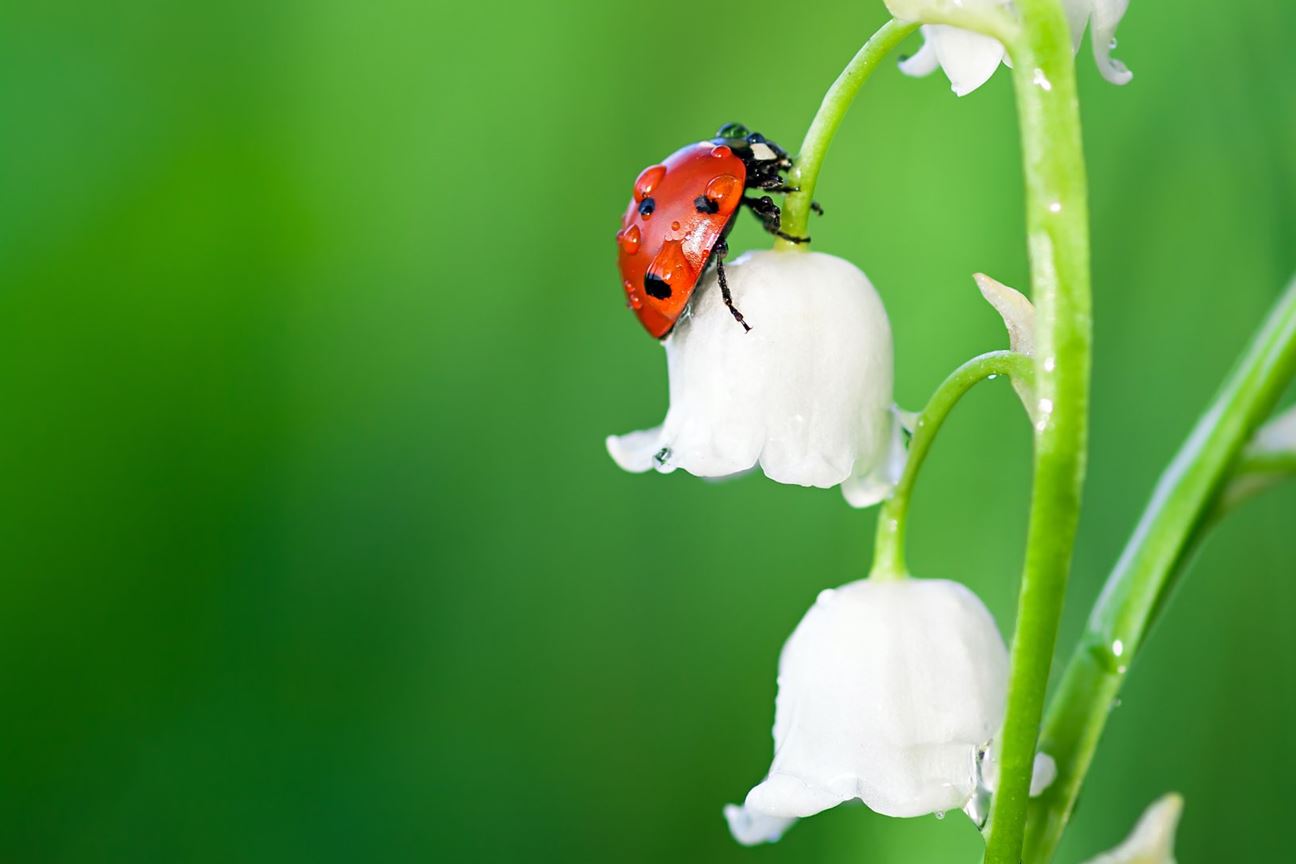
Pretty little ladybug carrying some fresh dewdrops on its back
Aphids are small insects that live off the sap from plants. They can be devastating pests to plant life. Controlling aphids through chemical pesticides can also kill earthworms and other good insects and also affect your soil quality. So how can you deal with this problem? Ladybugs! They’re one of the most popular aphid predators, and they are beautiful guests in your garden. Not just aphids, but ladybugs lay their eggs in the colonies of many other plant pests and can become long-term pest control for a garden. One ladybug can consume over 5000 aphids in its lifetime! Also, again, they are BEAUTIFUL.
2. Ground Beetles
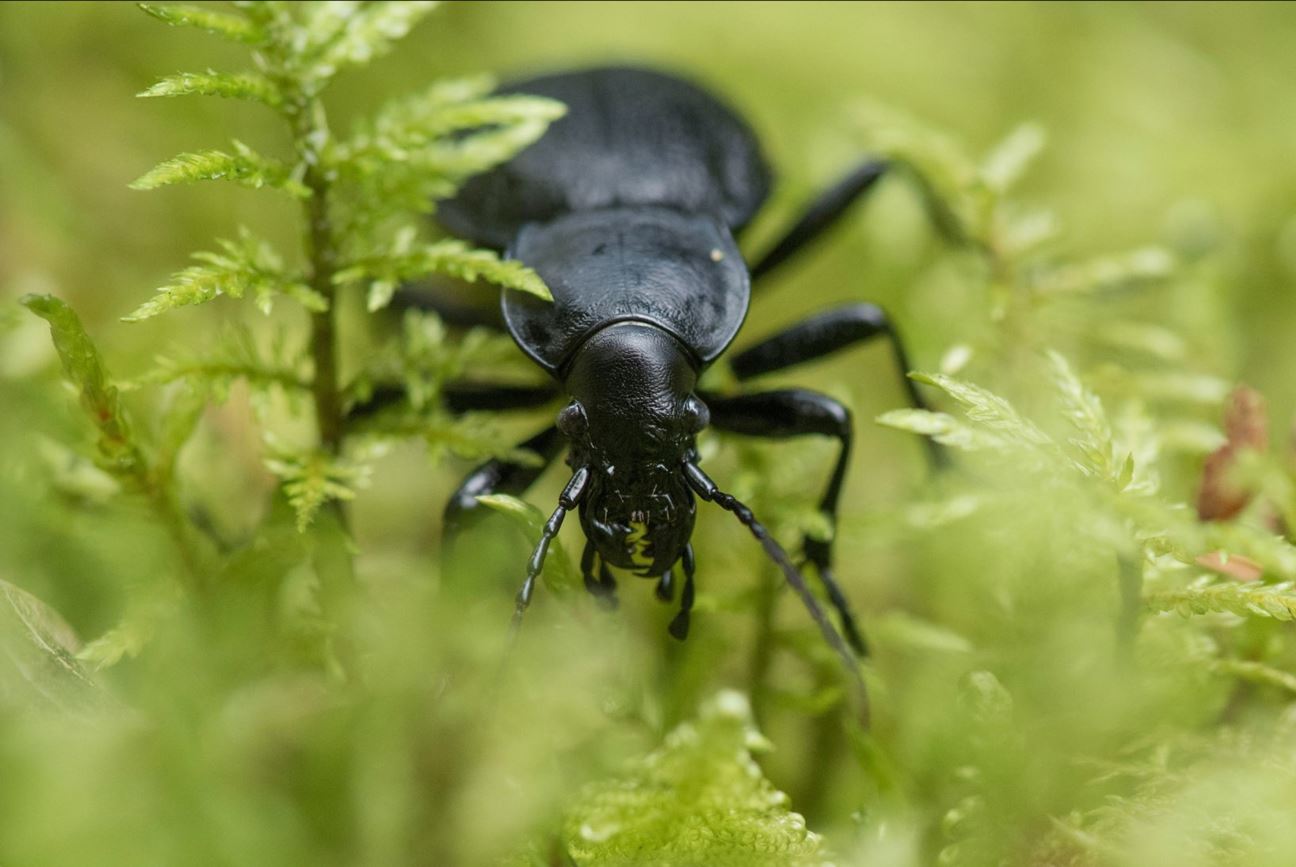
the silent night guards of your soil
They live on and under soil and mulch and are brilliant biological control agents. A study shows that on their own they can prevent 40% crop damage in one garden. Their soil movements are important in mixing topsoil layers and making sure there is no stagnation. They prey on aphids, cutworms, slugs and most importantly on invasive caterpillars. They’re usually only active at night, so if you’re squeamish about bugs, you don’t have to see them around much. They’re the little sentry guards of any good garden!
3. Beneficial nematode
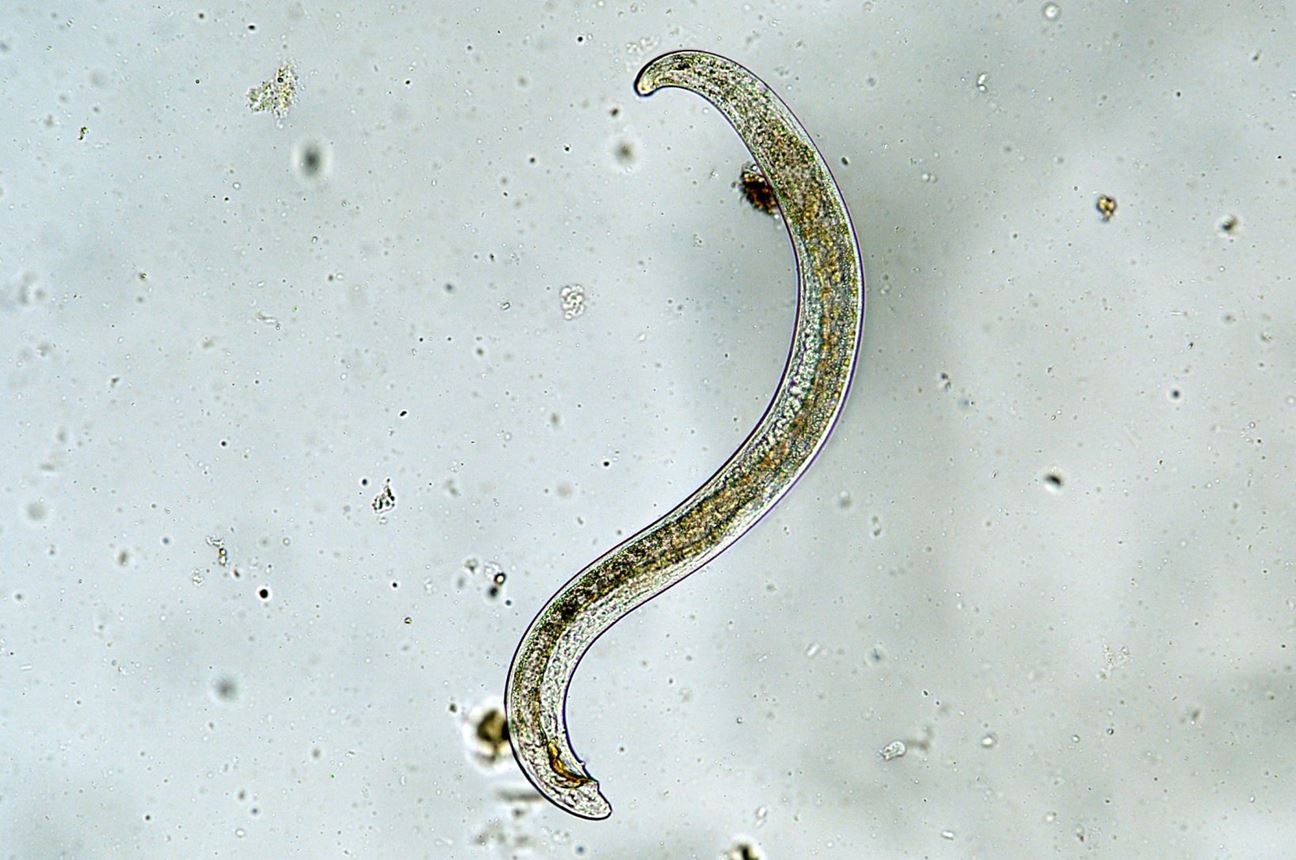
a single beneficial nematode under a microscope
These guys are brilliant! They are not insects but small microscopic roundworms that naturally dwell in the soil. They are very in-demand these days because of their amazing pest-control qualities and you can buy kilograms of them to mix into your soil! They have absolutely no risk to plants or humans and other animals. They only feed on soil-dwelling insects by entering their bodies and consuming them from inside. They are microscopic so you will never have to see one, day or night. The soil may look undisturbed, but in it are millions of little worms working hard to help it stay healthy! That’s why its official name is the ‘Beneficial Nematode’.
4. Spiders
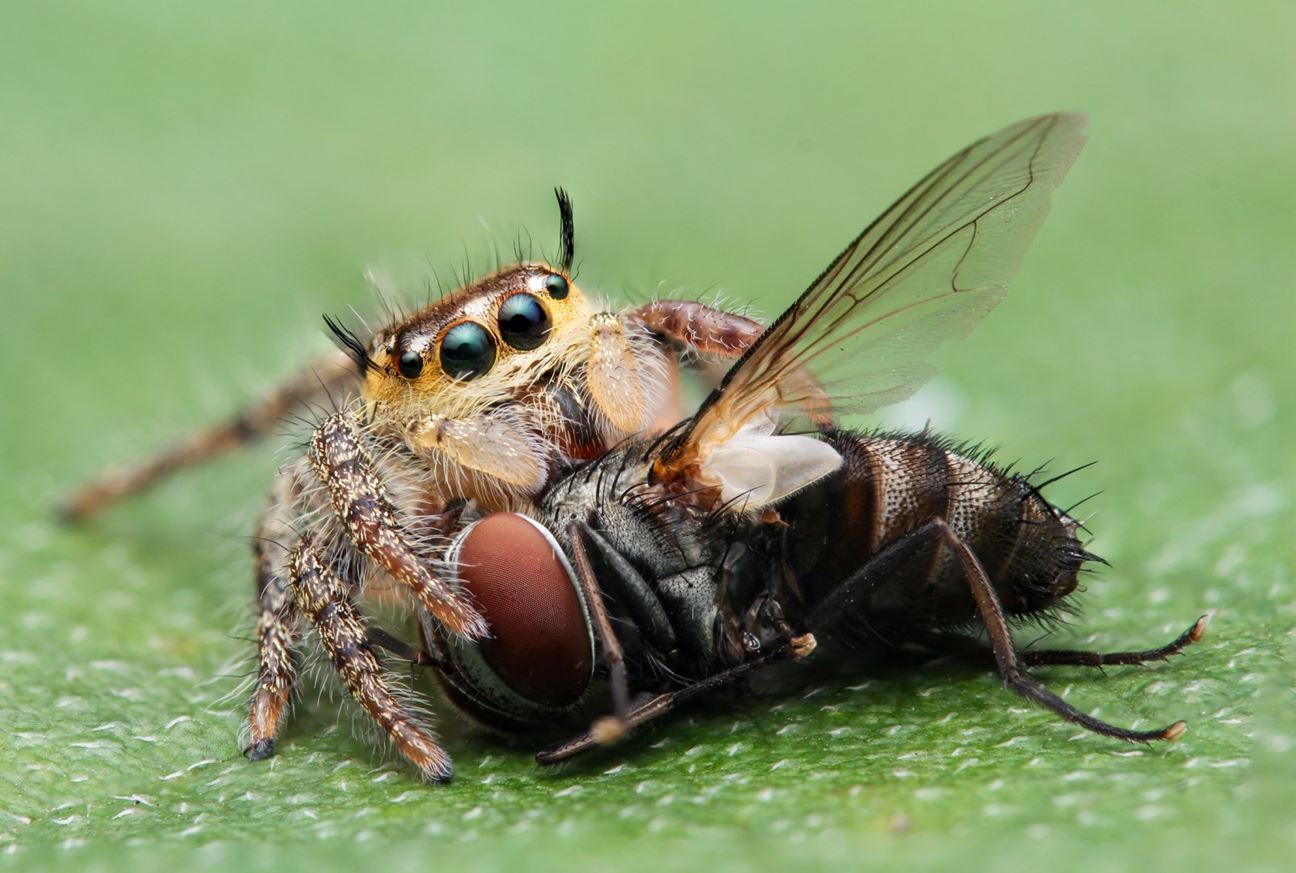
The most adorable jumping spider in the world, looking proud of having caught its prey
There are thousands of beneficial spiders whose very existence may be keeping your plants thriving without you even knowing about it! Weaving spiders — who catch their prey using their webs — can keep moths, flies, and all the other aerial pests away. Cursorial spiders like the jumping spider, wolf spider and others hunt by roaming around the garden and hunting the prey they find. These are beneficial in keeping all the soil and root pests away. Spiders are brilliant biological control agents due to this multi-level pest control. Having soil pests can change the pH of the soil, which can, in turn, affect the plants. Spraying pest control is unhealthy for your plants, soil and water various reasons, however, it does not take care of aerial pests. So, having these trusty little eight-legged hunters around is a win-win situation. Hunting spiders also are only usually active at night, so you don’t even need to encounter them! Not to mention, jumping spiders like in the picture above, are the cutest little creatures to ever exist.
5. Praying Mantises
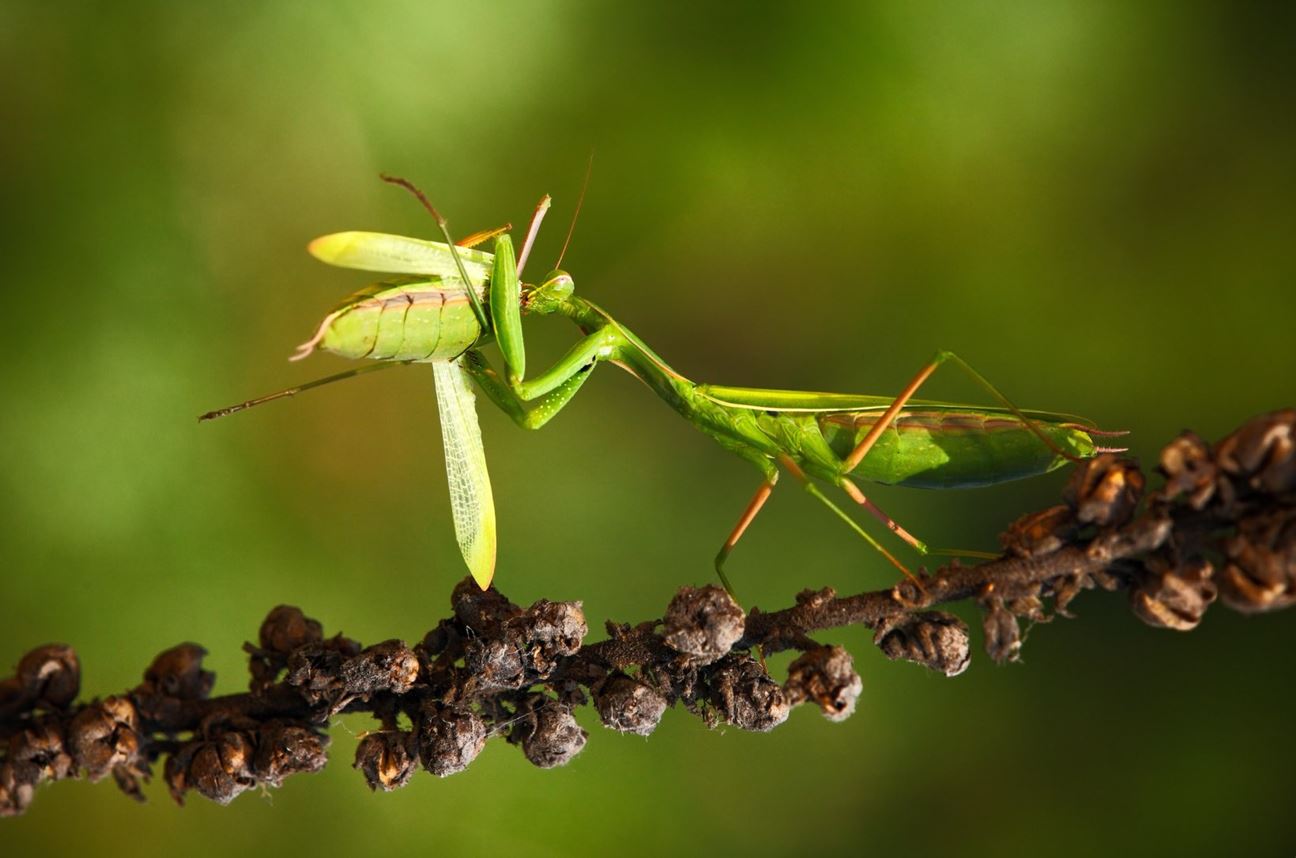
praying mantis eating another praying mantis because they eat everything
Now, praying mantises are voracious predators in every sense of the word. They have huge appetites and are excellent hunters, so your soil pests don’t stand a chance. The only problem is - neither do any other bugs! Praying mantises will usually prey on any insect - even the good ones. However, they usually prefer locusts and crickets, which are some of the most invasive and destructive garden pests. The reason praying mantises are a good addition to your garden is because they are ecosystem balancers. If there were too many “good insects” preying on all the pests, their increase in population can become a problem in itself. Praying mantises help control all insect populations and maintain them at the perfect balance that every mini-ecosystem needs.
6. Braconid Wasps
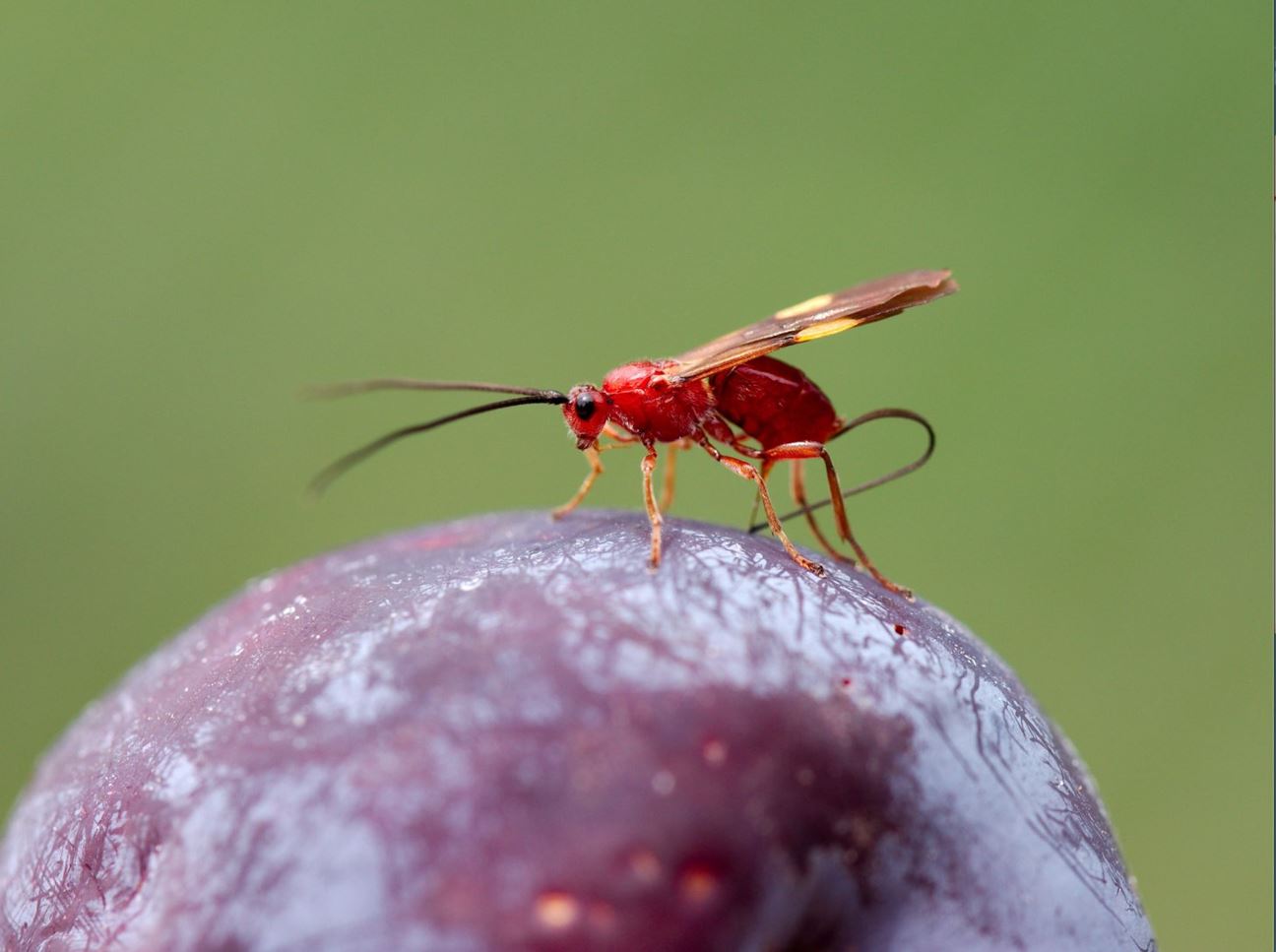
beautiful red brachonidae species resting on a grape
You may have seen these guys on National Geographic at some point. This group of wasps is famous for being parasitic wasps that kill caterpillars by laying their eggs inside them. The wasp larvae then feed on the caterpillars from inside. Wasps are not usually recognised as natural pest controllers, but they really should be. Not only do they help pest control, but they also help pollinate! Aphids, tobacco hornworms, tomato hornworms and more- all are soil and plant pests with devastating effects. Braconid wasps lay their eggs in the larvae of these insects and prevent their populations from taking over your garden!
Bugs and critters may not be liked by most, but their role in helping us enjoy life the way we do is undeniable! Their existence in itself helps us in so many ways that we are ignorant or uneducated about. A lot of them work in the soil, quietly and peacefully. Today being World Soil Day, these little garden sentries deserve our appreciation.